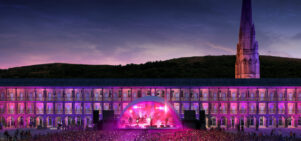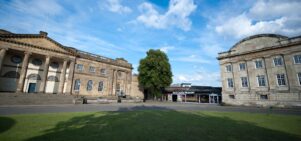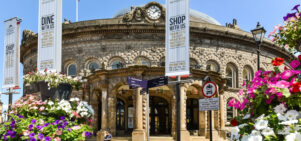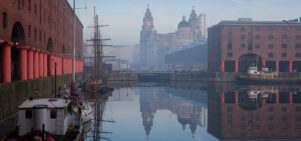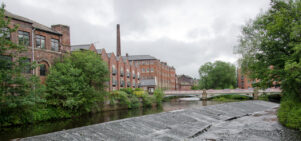Imperial War Museum North’s take on frontline medicine
Julia CoultonWar art so often focuses on the battlefield, but how about an exhibition that looks at the aftermath?
All armed conflict demands that medical personnel put their lives at risk, either in a paid or voluntary capacity, by caring for the wounded. They are forced to administer life saving treatment under fire and in a critically short space of time – the ‘platinum ten minutes’ that make the difference between living or dying. Florence Nightingale it is not, and now a new exhibition at Manchester’s Imperial War Museum sets out to illustrate just that medical reality.
Saving Lives: Frontline Medicine in a Century of Conflict focuses on medical care in a war zone, with visitors immediately transported to the theatre of war via the exhibition’s entrance – a mock-up of the inside of a Chinook helicopter, complete with the overwhelming sound of rotor blades whirring. The journey of a casualty is illustrated via exhibits that date from WWI right up to the current conflict in Afghanistan. As you might expect, advances in military medicine have had to keep pace with the development of more advanced weaponry, from WWI’s shells and poison gas to today’s Improvised Explosive Devices (IEDs), which inflict very different types of injuries.
Holes punched into the bodywork of a Land Rover ambulance caused by a mortar attack at Basra airbase in Iraq bring home how close to danger medical personnel work. And many personal stories from serving soldiers and medics, recorded in their own voices, reveal more than any artefact could. Major Margaret Barclay-Cooke, for example, describes how having landing in the Falklands, she had to somehow set up a field hospital in freezing and inhospitable conditions, despite the fact that the ship carrying her medical supplies had been sunk. Dorothy Irving-Bell, a nurse in both World Wars, talks of creeping into a ward full of wounded soldiers at night, and hearing the men cry out; their nightmares expressing the horror they had witnessed. “There wasn’t a thing any of us wouldn’t have done for them,” she says, “not a thing.”
Florence Nightingale it is not, and this exhibition sets out to illustrate the medical realities of war
What is surprising about this exhibition is that it uncovers a more positive side to warfare: the impact of frontline medicine on wider medical advances. Penicillin, blood transfusions and plastic surgery all owe their development to the techniques deployed on and as a result of the battlefield. There is a particularly moving section about the aftermath of war on those physically or mentally affected by it. Lance Corporal Nick Davis, for example, was seriously wounded by an IED in Afghanistan in 2007, and posed for the nude portrait shown here. He wanted to raise awareness of what injured service personnel go through after they return home. “It’s got to be thought provoking,” he says of the work, keen to show that his injured hip, invisible whilst clothed, is actually just as much a problem for him as the more obvious loss of a leg.
Older wars are referenced, too, with artefacts from WWI including the medical case sheet of poet Siegfried Sassoon and the grim reality of a folding operating table. And as usual with Imperial War Museum North, there are plenty of interactive and visual displays for younger visitors. This is not an exhibition targeted at families, as some of the content is understandably quite full-on, but the museum is to be commended for not shying away from the reality of war, and it was good to see a school party taking it all in during my visit.
Regardless of your views on a particular war, or even on conflict in general, this is a moving and important exhibition that demands to be seen.

